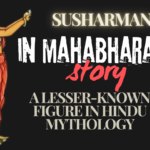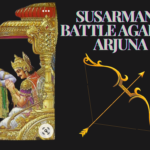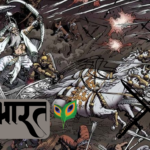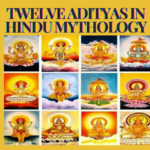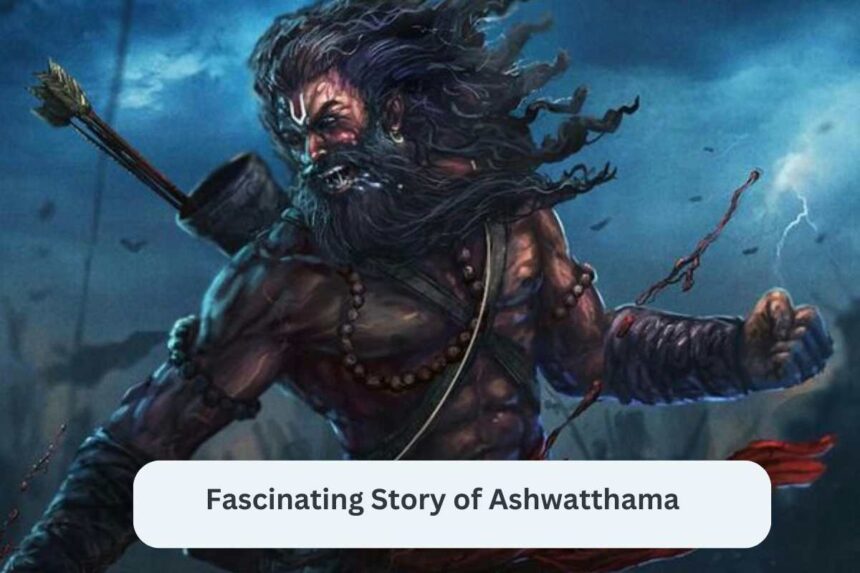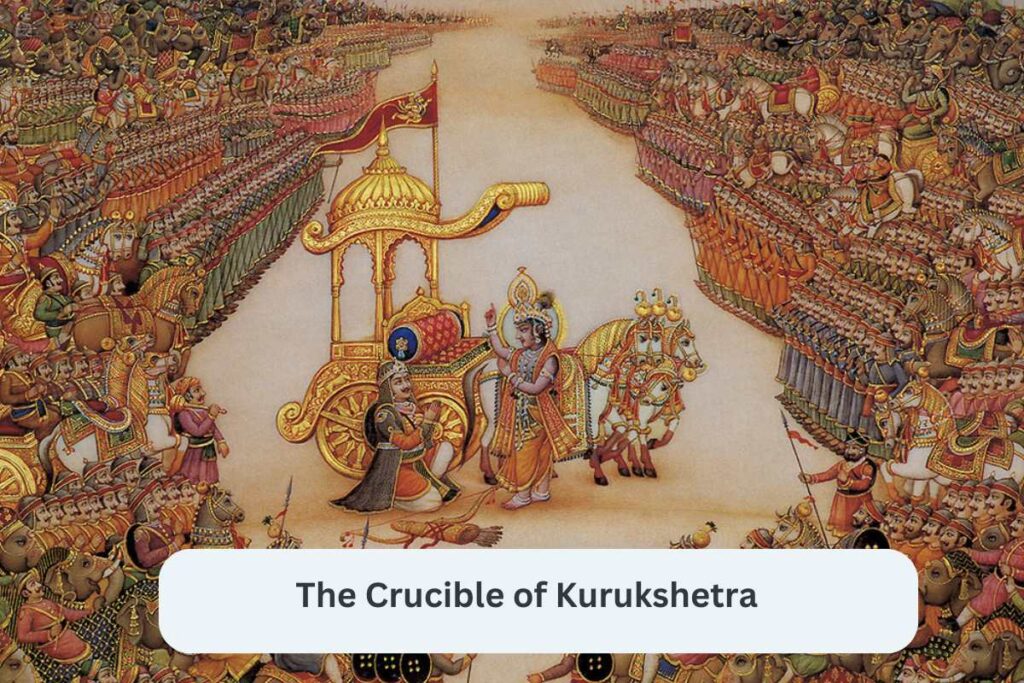In the vast tapestry of Indian mythology, few characters capture the imagination quite like Ashwatthama. The son of guru Drona and grandson of the sage Bharadwaja, Ashwatthama emerges as a figure of both reverence and intrigue. Son of the illustrious guru Drona and grandson of the venerable sage Bharadwaja, Ashwatthama’s story is a tapestry woven with threads of valor, tragedy, and divine destiny. As we embark on a journey to unravel the mysteries surrounding this enigmatic character, we delve into the depths of ancient lore to discover the true essence of Ashwatthama.
The Origins of Ashwatthama
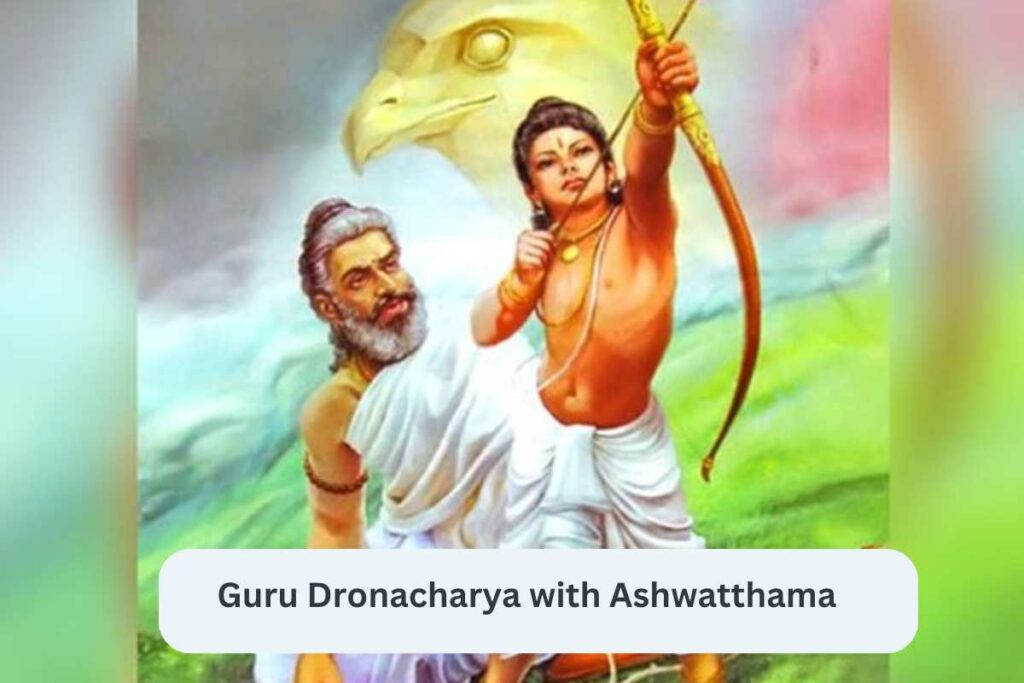
He was born into a family known for being great warriors and wise in spiritual matters. Ashwatthama stood out from the beginning because he showed bravery, strength, and a strong commitment to his beliefs.
According to legend, Ashwatthama had a magical gem on his forehead, given to him by the gods. This gem was like a symbol of his fate, giving him incredible power and keeping him safe from harm. It reminded him constantly of his important job: to protect what’s right and defend those who need it. With such a big responsibility, Ashwatthama began a journey that would really test him and shape his whole life.
The Crucible of Kurukshetra
Importance of trust in a Relationship : Read Here
The Tragic Turn of Fate
However, amidst the chaos and carnage of war, tragedy struck with devastating consequences. Fueled by deception and treachery, Ashwatthama was led to believe that his beloved father, Drona, had been slain in battle. Consumed by grief and rage, he unleashed a torrent of destruction upon the Pandava camp, seeking vengeance for the loss of his father and the betrayal he had endured.
Yet, in his quest for retribution, Ashwatthama crossed a line from which there could be no return. His actions, born of grief and fueled by fury, led to untold suffering and tragedy, forever staining his legacy with the blood of innocents. As he stood amidst the ruins of his own making, Ashwatthama grappled with the consequences of his actions, haunted by the ghosts of the past and the weight of his own guilt.
The Legacy of Ashwatthama
In the aftermath of war, as the echoes of battle faded into silence and the smoke cleared from the battlefield, Ashwatthama stood as a symbol of the complexities of human nature. A figure of both admiration and revulsion, he embodied the eternal struggle between light and darkness, righteousness and temptation. His story serves as a cautionary tale, a reminder of the dangers of succumbing to the darkness within us and the devastating consequences that can arise from unchecked rage and vengeance.
Yet, amidst the shadows of his own past, Ashwatthama’s legacy endures as a testament to the enduring power of redemption and forgiveness. Though he may have faltered and fallen, he serves as a reminder that even the darkest of souls can find solace and redemption in the light of compassion and forgiveness. As we reflect on the journey of Ashwatthama, we are reminded of the timeless truths of Indian mythology – that even in the midst of darkness, there is always hope, and that even the greatest of sins can be forgiven in the light of divine grace.
The Mysteries Unveiled
As we delve deeper into the lore surrounding Ashwatthama, we uncover layers of mystery and intrigue that shroud his character in enigma. From his divine birth to his tragic downfall, there are many aspects of Ashwatthama’s story that continue to captivate and fascinate scholars and enthusiasts alike.
One of the most intriguing aspects of Ashwatthama’s character is his association with the divine. Born from the union of mortal and immortal, he embodies the dual nature of humanity, caught between the realms of gods and men. His divine heritage, symbolized by the gem on his forehead, serves as a constant reminder of his connection to the celestial realms and the responsibilities that come with it.
Yet, despite his divine lineage, Ashwatthama is also depicted as a flawed and complex character, prone to the same weaknesses and temptations as any mortal. His descent into darkness, fueled by grief and anger, serves as a cautionary tale, a reminder of the dangers of succumbing to the darker impulses of the human heart.
FAQs about Ashwatthama
Was Ashwatthama truly invincible? While Ashwatthama was indeed a formidable warrior, his invincibility was not absolute. Like all mortals, he was subject to the whims of fate and the consequences of his actions. While his divine heritage and martial prowess made him a formidable opponent, they also placed him on a path fraught with peril and tragedy.
What role did Ashwatthama play in the Kurukshetra War?
Ashwatthama fought on the side of the Kauravas in the Kurukshetra War, serving as a loyal ally and fierce warrior. His contributions to the war effort were significant, and he played a key role in several pivotal battles, including the confrontation with Ghatotkacha and the use of divine weapons against the Pandava forces.
What led to Ashwatthama’s downfall?
Ashwatthama’s downfall can be attributed to a combination of factors, including his pride, anger, and thirst for vengeance. Fueled by grief over the loss of his father and manipulated by those with their own agendas, he unleashed a devastating attack on the Pandava camp, leading to untold suffering and tragedy. In the end, it was his inability to control his emotions and his willingness to embrace darkness that ultimately led to his downfall.
What lessons can we learn from the story of Ashwatthama?
The story of Ashwatthama serves as a powerful reminder of the consequences of unchecked anger and the importance of forgiveness and redemption. His tragic descent into darkness highlights the dangers of succumbing to the darker impulses of the human heart and the need to strive for compassion and understanding in the face of adversity.
What became of Ashwatthama after the events of the Mahabharata?
According to legend, Ashwatthama was cursed by Lord Krishna to roam the earth for eternity, his body oozing blood and pus as a reminder of his sins. Though his fate is shrouded in mystery, his story continues to endure as a cautionary tale, a reminder of the complexities of human nature and the eternal struggle between light and darkness.
As we reflect on the story of Ashwatthama, we are reminded of the timeless truths and eternal wisdom contained within the pages of Indian mythology. His journey serves as a testament to the enduring power of myth and legend to captivate the human imagination and inspire us to seek deeper truths about ourselves and the world around us.
